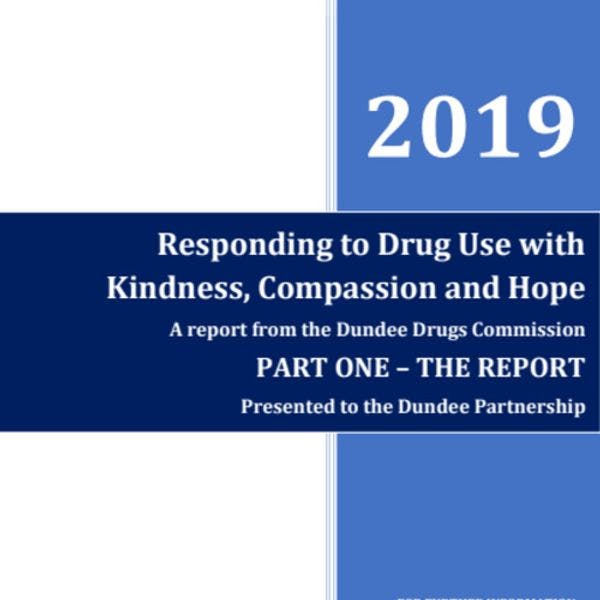Répondre à l’usage de drogues avec bienveillance, compassion et espoir – Rapport de la commission des drogues de Dundee
La Commission des drogues de Dundee présente ses conclusions et recommandations afin de transformer l’approche de la ville envers l’usage de drogue, proposant ainsi un plan pouvant s’appliquer au pays entier. Pour en savoir plus, en Anglais, veuillez lire les informations ci-dessous.
The Dundee Drugs Commission has been an intensive and rapid review of the recent history of the impact of drug use across Dundee, and the help available for people who use drugs in the city. Local Commission members have been supported by experts from across Scotland and the wider UK. To be clear, the Commission was set up in part to assess the effectiveness of the strategic planning and delivery of services co-ordinated by the Dundee Alcohol and Drug Partnership and more broadly across community planning partners (Objective #4). During the course of our work, we have learned about inadequacies in our local systems and services. We have frequently heard from individuals and families who feel that the system has failed them. All our recommendations are born out of the experiences of people in Dundee.
As a Commission, over the course of the last year, we have received evidence from over a thousand different people – those with lived experience of problems with drugs (current and past); family members; members of the public; clinicians and GPs; staff who work in drug treatment and support services; staff who work in wider health and social care services; senior officials within NHS Tayside, Dundee City Council and Dundee’s third sector; politicians and elected members; and academics.
Some individuals and families have spoken in great detail to us about positive experiences of the help and support they’ve received and the strategies they have used themselves to move towards recovery from drug use. Many individuals and families shared their grief and loss over the devastation that has been caused by drug use. We have heard numerous stories of immense challenges and barriers put in front of those who require help and support, compounded by the pervasive stigma that is still attached to being a person who experiences drug problems. Staff working in services have shared both positive and enthusiastic accounts of their efforts to help those who present to services, as well as details of immense frustration and anger when things do not work as they should.
Our review of a substantial amount of evidence has taken time to distil and balance. We have been aware that when an independent Commission is set-up then you tend to have all the stories coming to the fore of how things are not working. However, we have also taken the time to seek out and listen to those who have a positive story to tell – whether one of how they’ve successfully made changes to their drug use by themselves (or with help from family and others) – or whether a story of how they have received the help required from local services. By so doing, we believe that we have achieved a balanced understanding of the reality of issues faced.
Our review has led us to identifying a number of key messages – all of which we have used to form the challenging set of recommendations. The key messages in our report are structured underneath the key themes of our work:
• Leadership and Governance;
• Drug Deaths;
• Treatment and Support; and
• Mental Health.
